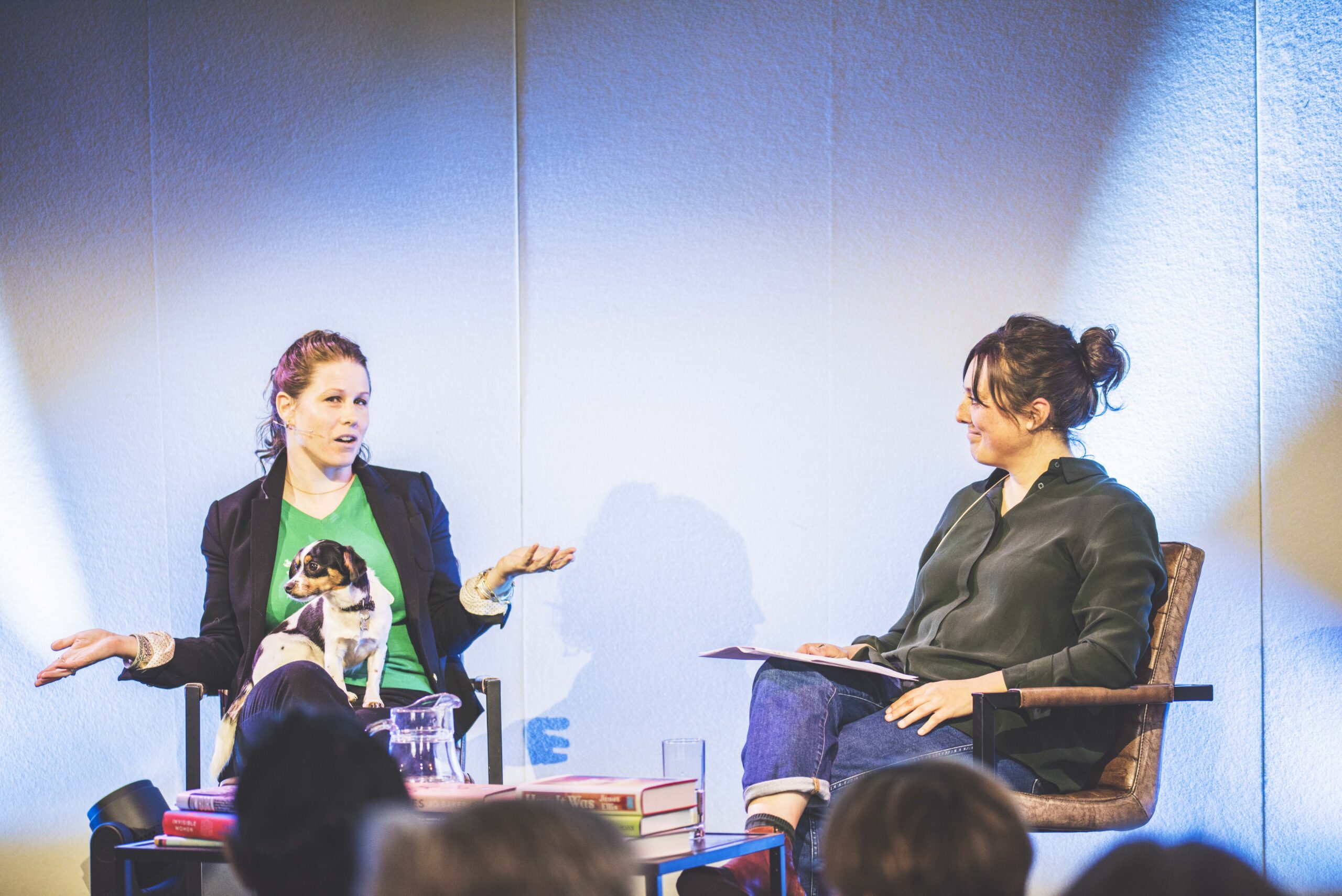REVIEW: Caroline Criado Perez, Invisible Women
Posted by

12 October
St Nic’s Church
Hannah Hodgson
As the speaker at this talk pointed out, when I refer to ‘female’ I mean the gender assigned at birth. When I say ‘woman’ I refer to those who identify as this pronoun.
What does it mean to be a woman today? We are sold the narrative that modern women can have it all – careers, relationships, singledom, choice surrounding children and evolving ideas of what a family looks like. What if I told you being a woman in 2019 means that you are 17% more likely to be killed in a car accident? Or that heart bypass surgery kills innumerable more women than men because post-surgery they slot straight back into the care-giver roles that they’re so well accustomed to, whereas men traditionally have someone to care for them? Do you know that ‘unisex’ personal protective equipment (e.g. stab vests, helmets, protective gloves) kill and injure many more women than men, because ‘woman’ in the eyes of industry, means a small man. Criado-Perez quipped, “its our fault for having breasts – isn’t it? They are obsessed over and yet completely overlooked in the everyday life of women everywhere.” This is what it means to be a woman in 2019. All of these things, Criado-Perez points out, have been caused by the gender data gap. Women are simply missing from research, be these crash-test dummies, the apple watch, simple toileting products or outer space suit sizing.
I have a complex medical condition, which means I am in hospital a lot and have to take many medications. The fact which has haunted me since reading Invisible Women: women have been excluded from medical trials for years thanks to the erratic nature of the menstrual cycle, and how this affects how drugs act in the body. Yes, you read that correctly. Men only drugs trials. This is just one issue Criado-Perez discovered while writing Invisible Women.
I’m not alone when I say I expect medicine to be fact driven – and in my mind, this includes gender variations. The male centric ‘norm’ that comes from these results is deadly for women, because our symptoms are deemed ‘a-typical’. For example, women can present different symptoms when experiencing a heart attack compared to back pain, whereas men are more likely to get the classic crushing chest pain in response to both of these illnesses.
Criado-Perez took the liberty to point out she doesn’t believe there is a conspiracy behind the data gap – it is not intentional. It’s simply that research norms haven’t been challenged in decades – and if there is a lack of diversity within a research team there isn’t anyone there to point out these glaring gaps and look to rectify them.
If you don’t believe there is a need for feminism in 2019, read this book. Use your outrage – channel it into palpable change. Criado-Perez urged all in the room to join her, to fight against the systems that are not designed to accommodate 50% of the population.
This work was produced by participants on our Durham Book Festival Reviewers in Residence programme, a cultural journalism programme run by New Writing North Young Writers. Reviewers in Residence gives aspiring journalists aged 15-23 the chance to review books, attend events and interview authors at Durham Book Festival. For more information about New Writing North Young Writers visit the New Writing North website.
Photo Copyright: Marion Botella


